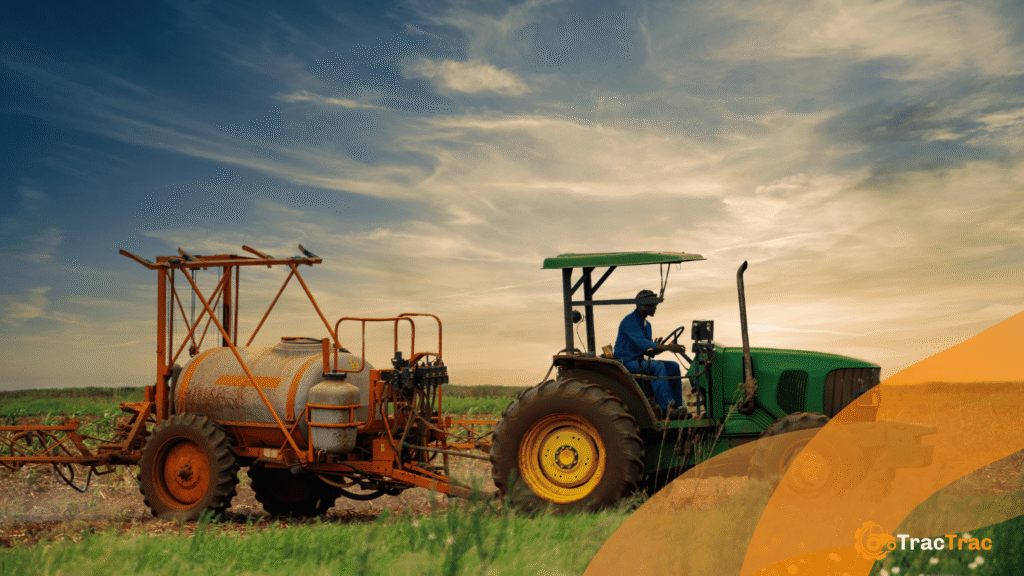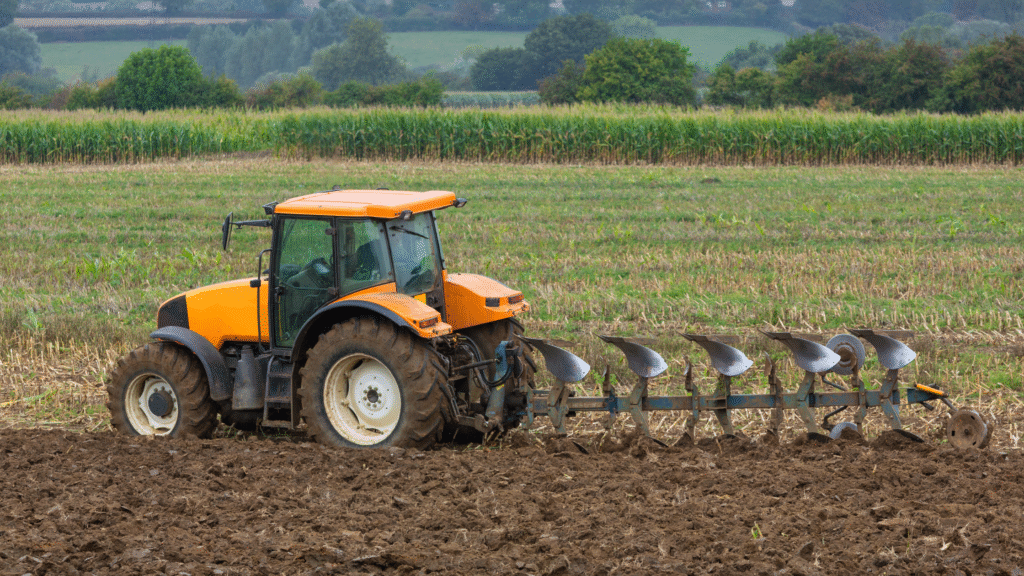
If you’re in the market for a tractor, you probably already know that this is not a small purchase. Unlike a car that you might trade in after a few years, choosing the right tractor for your farm is a long-term investment and one that could last decades with proper maintenance.
But how do you make the right choice? With so many brands, horsepower options, and attachments, it can feel overwhelming.
The truth is, there’s no “one-size-fits-all” tractor. The best choice depends on your farm size, the type of crops you grow, and the tasks you need to perform. This guide will walk you through everything you need to know about how to choose the right tractor, so you don’t end up with a machine that’s too weak for your needs—or one that burns more fuel than necessary.
Step 1: Consider the Best Tractor Brands for Your Region
One of the first things farmers think about is brand. But let’s be honest, choosing the right tractor for your farm isn’t just about picking a “popular” name. A great brand is useless if spare parts and servicing are hard to find in your area.
Some of the most reliable tractor brands in Africa include:
- John Deere: A global leader in durability and advanced farming technology.
- Massey Ferguson: Trusted by many African farmers for its reliability.
- New Holland: A strong performer with affordable options.
- Mahindra: Budget-friendly and built to last.
- Kubota: Great for smaller farms and orchards.
Before making a decision, check if the brand has a local parts dealer or service point near you. That way, you won’t struggle with repairs and spare parts later.
Step 2: Choose the Right Horsepower for Your Farm Size
Horsepower (HP) is one of the most critical factors in choosing the right tractor for your farm. A tractor that’s too weak will struggle with tasks, while one that’s too powerful will waste fuel.
Here’s a quick guide to help you determine how much HP you need:
- Small farms (1-5 acres) → 20-30 HP: Ideal for light farm work like mowing, plowing small fields, and transporting small loads.
- Medium farms (5-15 acres) → 40-50 HP: Suitable for tilling, planting, and handling moderate lifting. If you are a smallholder farmer, then you likely fit into this category and locally produced Nigerian Tryctor, will be an ideal fit.
- Large farms (15+ acres) → 60+ HP: Best for heavy-duty plowing, large-scale farming, and harvesting.
If you’re unsure, start with a slightly higher HP than you think you need. It’s better to have extra power than to struggle with a weak tractor.
💡Also Read: Why Farmers Need Mechanization Services
Step 3: Match Your Tractor to Your Crop Type
Did you know that the type of crops you grow can influence how to choose the right tractor? Different crops require different tractor features.
- If you farm rice, look for a model that has excellent grip and stability for wet, muddy fields.
- If you grow fruits in an orchard, go for a compact tractor that can easily maneuver around trees.
- If you farm maize, wheat, or vegetables, a standard utility tractor with medium HP will work well.
Also, consider your farm terrain. If your land is hilly or rocky, choose a tractor with strong traction and stability.

Step 4: Think About What You’ll Use the Tractor For
Tractors do more than just plowing. When choosing the right tractor for a farm, you should consider all the tasks you need to complete:
- Plowing and tilling fields
- Transporting heavy loads
- Clearing land
- Harvesting crops
- Lifting and moving materials
If you only need a tractor for light work, a subcompact model will do. But if you plan to expand your farming operations or handle heavy-duty tasks, you’ll need something bigger.
For example, I manage 40 acres, and I need to plow, harvest hay, and lift heavy materials. That’s why I’m considering a 50-60 HP tractor. If I were buying new, I’d go for a Kubota, but I’m also open to used models while waiting for a good electric tractor option.
Step 5: Choose a Tractor Based on Attachments, Not Just the Machine
A tractor is only as good as its attachments. Instead of choosing a tractor first, decide what tools you need, then pick a tractor that can handle them.
Common attachments include:
- Plows – Essential for preparing the soil before planting.
- Tillers – For breaking up and smoothing out soil.
- Loaders – Great for lifting and moving heavy materials.
- Mowers – For cutting grass and clearing fields.
- Sprayers – For applying pesticides and fertilizers.
If you already know which attachments you need, make sure the tractor you buy has the right horsepower and hydraulic capacity to support them.
Step 6: Find a Dealer with Good Service Support
Even the best tractors need maintenance. That’s why a good local dealer is just as important as the tractor brand.
Before buying a tractor, ask yourself:
- Is there a dealership nearby?
- How easy is it to get spare parts?
- Does the dealer offer repairs and servicing?
Many farmers make the mistake of buying a tractor that looks good on paper but is difficult to repair when something goes wrong. A tractor without local support can be a nightmare during peak farming seasons.
For example, if you own a Mahindra 4550, you’ll find it to be a great machine—no unnecessary electronics, just simple, powerful engineering that’s easy to repair. But the real advantage? If there’s a Mahindra dealer nearby, you won’t have to wait long for parts or servicing.
Final Words
The right tractor is an Investment in your farm’s future.
At the end of the day, how to choose the right tractor depends on your farm’s needs. A cheap tractor might save you money upfront, but if it’s unreliable or expensive to maintain, it’s not worth the trouble.
To make the best choice, remember to:
- Choose a brand with strong dealer support.
- Pick the right horsepower for your farm size.
- Match your tractor to your crops and farm terrain.
- Think about long-term farming tasks.
- Select a tractor that can handle all necessary attachments.
When you take your time and do your research, choosing the right tractor for your farm becomes easier. Your tractor should be a tool that makes your work smoother—not a source of stress.
FAQs – Frequently Asked Questions
How do I choose a tractor?
Start by considering your farm size, crop type, and daily farming tasks. Then, check the horsepower, brand reputation, dealer support, and attachment compatibility before making a purchase.
Which tractor is best for farmers?
It depends on your needs! For small farms, a 20-30 HP model is best. Medium farms need 40-50 HP, while large farms should go for 60+ HP. Popular brands include John Deere, Massey Ferguson, Kubota, and Mahindra.
What size of tractor is best for 10 acres?
A 40-50 HP tractor is ideal for a 10-acre farm. It’s powerful enough for plowing, planting, and general farm work.
Which tractor is best for 5 acres?
A 20-30 HP tractor is enough for a 5-acre farm, making it perfect for light plowing, mowing, and transport.
